Bhakti Desai, a Bhaurao Kakatkar gave an interview to Vahid Pourtajrischi of Mehr News International Service on India-Pakistan relations, where she believed that BRICS could challenge the US monopoly over international economic order and replace it with a new great market created by its members. “In the post-Cold War era, the US has been following a very crafty policy towards both these countries,” she told Mehr News, claiming that India would not accept US mediation in India-Pakistan border issues, since India had traditionally seen Kashmir part of its territories and what had happened there, was a matter of internal affairs:
Rajnath Singh the Indian Minister of Home affairs has recently claimed that his country is ready to help Pakistan to fight terrorism. Meanwhile the two states challenge each other on many issues such as Kashmir crisis, so how such co-ordination is possible?
It is true that India-Pakistan have several unresolved issues which need to be solved through dialogue. But as far as Kashmir is concerned, India believes that Kashmir is an integral part of India and what happens in Kashmir is India’s internal affair. The problem of Kashmir is one of terrorism sponsored by Pakistan. Cross-border terrorism is therefore the real problem. Pakistan understands that there is no chance it can engage and defeat India in an open battle; therefore, it has resorted to the callous and devious plan of cross-border terrorism. What concerns India most is that Pakistan’s entire establishment is engaged in fuelling terrorism in India. Though Pakistan has time and again tried to convince the international community of its intentions of fighting terrorism, but facts on the ground are that. Pakistan is a safe haven for various domestic and transnational terrorist organizations. Therefore, India has serious doubts about Pakistan intentions of fighting terrorism. However India has no ill-will against the people of Pakistan and is committed to peaceful relations. In spite of serious issues like cross-border terrorism, India has always strived for cooperation and friendship with Pakistan. This intention is reflected in Rajnath Singh’s recent comment where he offered to help Pakistan carry out anti-terror campaign if its intentions remain clear.
Can BRICS assure a multipolar world and a new world economic order? What are the prospects & challenges of BRICS?
The eighth BRICS summit was held in Goa, India, under the theme ‘Building Responsive, Inclusive and Collective Solutions.’’ The Goa declaration adopted by the BRICS member states calls upon members to further strengthen BRICS solidarity and co-operation based on common interests. It also reiterated the view of these countries that a more equitable and democratic multipolar international order is possible only through a determined approach based on solidarity, mutual trust and benefit, equity and cooperation. The Declaration also reaffirms that BRICS nations are committed to contributing in building a fair and equitable international order.
BRICS has become a common platform for developing countries. The World Bank and IMF have been instruments of forwarding western interests and terms while conveniently neglecting the interests of the developing world. The New Development Bank, established by the BRICS, aspires to serve as an alternative to international financial system and usher in a new world economic order which will ensure liberation of BRICS countries from the financial policies of the western countries. The enormous potential of the BRICS countries allows them to lead the world from unipolarism to multipolarism. BRICS is strong in the terms of size, population and resources. It is also the largest market in the world on account of its population. The BRICS leaders hope that with increased mutual trust and closer coordination, they will be able to make international relations more just, democratic and balanced. However, in spite of the many prospects there are also various challenges that BRICS needs to tackle. The member countries have different political systems, cultures, economies and national interests. Moreover the geographical distance is also a factor while Brazilian, South African and Russian economies are not at their best, China’s economic growth has also slowed down. India has emerged as the fastest-growing economy yet its GDP is still a concern. The real challenges before BRICS is to build exemplary unity on key international issues. While India’s proximity to the US has not gone down will with Russia. Russia’s joint military exercise with Pakistan and China’s refusal to refer to cross-border terrorism or to any Pakistan-based terrorist groups at the Goa summit has stunned India. In spite of these and many such challenges, I would say the Prospects of BRICS are indeed bright. The Goa declaration is a testimony to that. In Prime Minister Narendra Modi’s words, ‘In a world of new security challenges and economic uncertainties, BRICS stands as a beacon of peace, potential and promise.”
Donald Trump, Republican candidate in US Presidential election 2016 has claimed that he will try to mediate between New Delhi and Islamabad if he succeeds. How do you evaluate his claim? What is the benefit of such probable action for Trump as a businessman or in quality of probable US president?
There is no chance India will agree to any mediation offer made by the US president on Kashmir issue. As far as Trump is concerned as a presidential candidate, he is just trying to get his calculations right and establish himself as a judicious and unprejudiced leader. Every presidential candidate of the US understands that in the changing international terrain, the US needs both India and Pakistan to further its national interests. While Pakistan may be important to the US in terms of its strategic location, India is a potential market for its products. In the post-Cold War era, the US has been following a very crafty policy towards both these countries. On one hand it consoles India after every terrorist attack and signs a nuclear deal with it, and on the other hand, it continues to give military and economic aid to Pakistan. The recent claims by Republican candidate Donald Trump are in tune with this policy. Trump knows that Pakistan is vital for his country’s strategic interests because of its geographical proximity to India, China, Afghanistan, Iran, Central Asia and the Middle East. He also understands that India is the fastest growing economy as well as the best potential market for American goods.
Russia has accepted to sell and deliver the new S400 missiles system to India according to the recently signed agreement between the two sides. Why has India decided to arm herself at the time of tension with Pakistan on one hand and China on the other? Could this agreement cause a provocation to these two states?
The Russia-India deal on S400 missiles is intended to enhance India’s defense against any aggression. The deal also strengthens partnership between India and Russia. In fact the deal should not be seen in connection to India’s relationship with Pakistan and China. The agreement is not designed to provoke or threaten any nation. India has always remained committed to the principles of peaceful coexistence, cooperation and non-aggression. However, in the light of recent surge in terrorist attacks, New Delhi feels that she needs to fortify her defense, hence India has signed the deal with Russia. Moreover, S400 missiles agreement should be seen in the light of old friends trying to rekindle their friendship. In the past few months the India-Russia friendship has seen difficult times with growing US-India partnership on one hand and Russia conducting its first military exercise with Pakistan on other hand. However, both countries realize that the bond they share is crucial.
India, Bangladesh, Afghanistan and Bhutan boycotted the SAARC summit. Do you evaluate this issue as a means by Modi to put pressure on Islamabad?
The SAARC summit of 2016 due in November in Islamabad which was earlier postponed now stands cancelled on account India, Bangladesh, Afghanistan and Bhutan pulling out of the summit. In my opinion this move by India was a well-calculated step by Modi to put diplomatic pressure on Pakistan after the recent Uri attack. The move also comes as a major diplomatic victory for India because the other SAARC members too cited “terrorism” and “imposed violence” as reasons for their withdrawal. In fact, these countries used the BIMSTEC platform at Goa to engage with each other on important issues while keeping Pakistan away. India responded to the Uri attacks at two levels on one hand it conducted surgical strikes in POK targeting terrorist camps and on the other hand it pulled out of the SAARC summit in Islamabad sending a strong message to Pakistan that India is prepared to take stern action against cross border terrorism. These decisions by Modi were designed to put pressure on Pakistan as well draw the International community’s attention to cross border terrorism.
Bhakti Manohar Desai is Professor of International Relations in Department of Political Science, D.M.S.M’s Bhaurao Kakatkar College, Belgaum
Interview by: Vahid Pourtajrischi



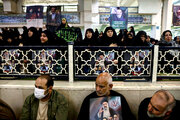
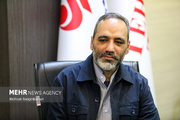
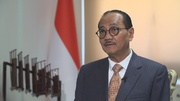

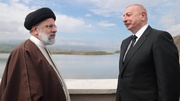

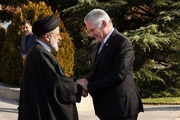
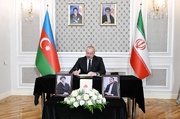
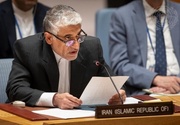
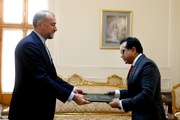
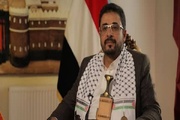
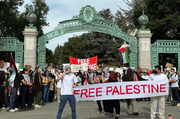


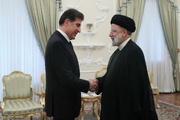
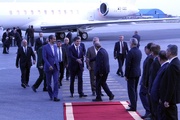
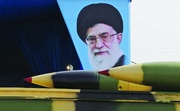



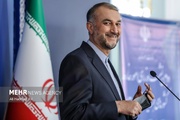
Your Comment